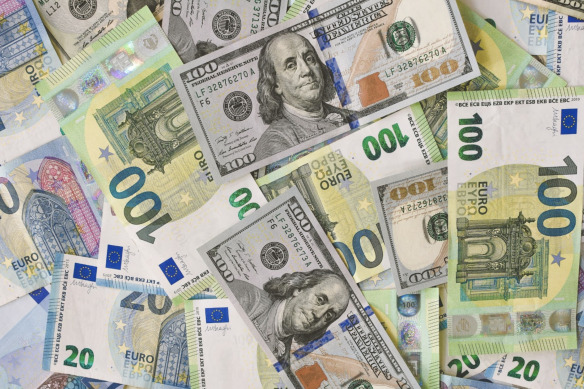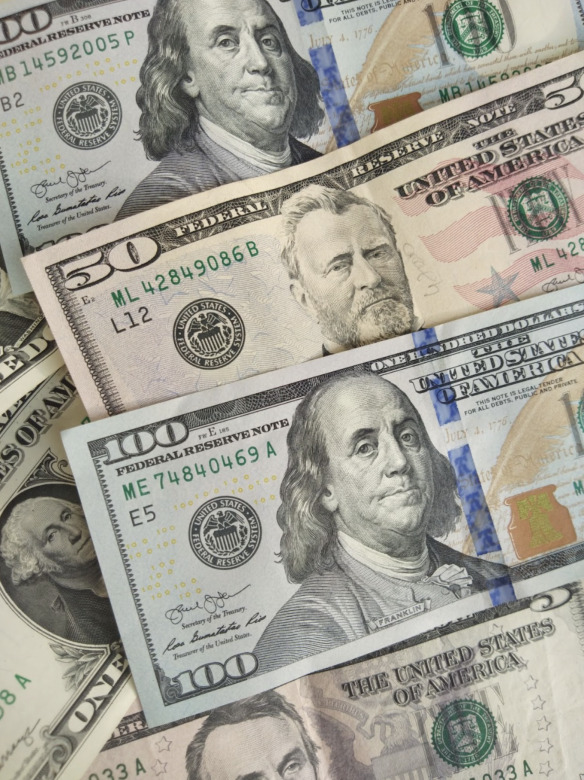What Is Forex Trading and How Does It Work?
PayBack Ltd are experts in getting money back for people who have been scammed. Forex trading scams are one such area they deal with regularly. To find out more about getting your money back after being scammed, get in touch with one of our experts for a free consultation.
The forex market, short for foreign exchange market, is a market for trading foreign currencies. In other words, it’s a place to exchange one currency for another, with the goal of making a profit.
The forex market is one of the busiest trading markets in the world, but it can be hard to understand how it works, especially for relatively new traders. The better you understand how forex trading works, the better prepared you will be to protect yourself against forex scams forex scams.

What Is Forex Trading All About?
The foreign exchange market is an extremely volatile market, meaning that trading on it is a high risk, but can also provide high rewards. The potential to make a lot of money in a short amount of time is what attracts so many traders to the market.
Every currency is traded in pairs on the forex market. For example, the pair EUR/USD is the pair for trading the Euro against the US dollar.
As values of different global currencies rise and fall throughout the day, there are opportunities to make profits by trading one currency for another.
What’s the Difference Between Day Trading and Forex Trading?
In the sense that both day traders and forex traders aim to make consistent profits by buying and selling their assets throughout the day as opposed to buying assets and holding them long term, day trading, and forex trading are similar.
The key difference between day trading and forex trading is what is being traded. Day traders can buy and sell a variety of commodities and stocks, whereas foreign exchange market traders only trade in global currencies.
What Are Forex Trading Hours?
The forex market is controlled by a global network of banks, located in major commerce hubs including London, New York, Sydney, and Tokyo. This means that, unlike specific stock markets, the foreign exchange market never closes during the week — it is accessible 24/7 from Monday to Friday.
What Is Forex Options Trading?
A forex option gives a trader the right to buy or sell a currency at a certain price on or before a certain date and time, without obligating them to do so. Buyers must agree on the prices and the dates and times with sellers and sign an options contract.
What Is a Currency Market and How Do They Work?
Currency markets have been around for as long as humans have been using currencies to buy goods and services.
If you’ve ever traveled and exchanged your local currency for a foreign currency, you’ve participated in a simple version of the foreign exchange market, albeit for practical purposes instead of in order to make a profit.
In forex trading, there are three main markets that traders participate in to try and earn profits:
Spot Forex Market
The spot forex market gets its name from the phrase “on the spot.” When you trade on the spot forex market, you are trading one currency for another right then and there at the current values.
Forward Forex Market
In the forward forex market, parties agree to buy and sell a certain amount of currency at a specified price at some point in the future. This point may either be on a specific date or within a date range.
Future Forex Market
Future forex market trading is similar to forward forex market trading, with agreements made about buying and selling set quantities of currencies at a certain date in the future. The main difference is that the future forex market utilizes legally binding contracts.
What Is a Base and Quote Currency?
The base currency in a forex trade is the first currency listed and is the currency you are buying when you make a trade. The quote currency is the second currency listed and is the currency you are selling. Every global currency is represented by a three-letter code.
Example of Base and Quote Currency
In the example USD/CAD, USD stands for US dollar and is the base. CAD stands for the Canadian dollar and is the quote. If the base/quote pair USD/CAD is trading at $1.28, it means that buying $1 USD costs you $1.28 CAD.

What Categories Do Most Forex Trading Providers Use?
With so many countries, many of which use their own unique currencies, you can imagine how many unique base and quote currency pairs it’s possible to trade on the foreign exchange market.
That being said, there are four main currency pair categories that forex traders usually trade-in through brokers:
Major Pairs
There are seven major pairs that account for approximately 80% of forex trades made around the world. All major forex pairs include the US dollar. Examples of major pairs are EUR/USD, USD/CAD, AUD/USD, and USD/JPY.
Minor Pairs
Minor pairs are less frequently traded than major pairs and don’t necessarily include the US dollar in all pairs. Examples of minor pairs in forex trading include GBP/JPY, EUR/GBP, and EUR/JPY.
Exotics
Exotics forex trading pairs up major global currencies with smaller currencies. For example, they might match USD with currency from smaller European countries that have currency other than the Euro, such as Denmark (DKK) or Norway (NOK).
Regional Pairs
Regional forex pairs are currencies paired up for two countries in the same region. For instance, Australia (AUD) and New Zealand (NZD) in Oceania or Norway (NOK) and Sweden (SEK) in Scandinavia.
How Does Forex Trading Work?
What Is the Spread in Forex Trading?
The spread is the difference between the buy and sell prices for any given forex pair. The bigger the spread, the more potential you have to make money from trading a certain forex pair.
What Is a Lot in Forex?
A lot is simply a standard-sized batch of currency units. Lots can be as small as 100, but standard lot sizes are 100,000. The bigger the lot traded, the higher the profits can be.
What Is Leverage in Forex?
Leverage is when traders borrow capital to make bigger forex trades. Many forex traders don’t have the capital to buy a standard-sized lot of 100,000 currency units, so they borrow in order to make larger trades and, hopefully, greater profits.
What Is Margin in Forex?
Margin is a sum of money set aside in a forex trading account to cover financial obligations to brokers in the event that a trade doesn’t go well for you. Different brokers require you to maintain different margin balances in order to trade with them.
What Is a Pip in Forex?
A pip is a single-digit movement in the fourth digit of a currency’s price on the forex market. So, if the value of USD/CAD moved from $1.28561 to $1.28571, it went up one pip.
What Is Swap in Forex?
A swap is an agreement to exchange foreign currency between two parties, typically with the goal of securing loans at a better interest rate than if you were to borrow directly from a foreign market.
What Is Swing in Forex?
Swing trading is when you perform forex trades that last a few days or longer to profit from an anticipated price change for a given currency. Since many forex trades can last as little as a few minutes, swing forex trading is considered mid-term trading, as opposed to short-term trading.
What Is Copy in Forex?
Copy-trading in forex is when you use some type of software to replicate the trades of other traders in real time, hoping to copy their success.
What Is the Best Forex Trading Platform?
There is no single best forex trading platform for beginners since trading on the foreign exchange market is not centralized. However, there are bad forex trading brokers, which are often unregulated and operate different scams and different types of fraud.
That’s why it’s important to make sure you always trade forex through a broker platform that’s regulated in the country you’re trading in. Every country has its own governing bodies for forex trading platforms, so do your research to find out what local regulations are and choose a reputable broker accordingly to protect yourself from forex scams.
How Do I Protect Myself From Forex Trading Scams?
- Check the licenses and regulations of any brokers you’re considering trading through
- Watch out for pyramid schemes, which involve you paying for forex trading “advice” or “training” and emphasize you recruiting more people into the program
- Don’t use forex trading bots or robotic software that allegedly helps you make good trades
- Be wary of any trading advice or promise that sounds too good to be true, i.e. “get rich quick” scams
- Avoid forex brokers that don’t have contact information or background info
- Don’t trust unsolicited marketing related to forex trading
- Do your research about any forex trading platform before using it to determine how trustworthy it is
If You Are Scammed By A Forex Trading Scam, Get Your Money Back With PayBack
PayBack are experts in getting money back from forex trading scams. Should you find you fell into a trap of and you have been completely ripped off, all is not lost. Contact us today to learn how we can help you retrieve your money from a forex trading scam.
Latest articles
- •
- •
- •
- •
Your money back guarantee
The fund recovery process can be a lengthy one and requires perseverance. Therefore it is vital that our clients are ready for it and trust us every step of the way. So if for any reason you are doubtful, you can ask for a full refund within the first 14 business days of the process.*
*Read Terms & ConditionsDisclaimer: Payback Ltd offers each new client a free consultation. Funds Recovery or other services that will be subsequently commissioned will incur fees and/or commissions, based on the service and the complexity of each individual case. Payback Ltd doesn’t offer any investments, financial services, or advice.
At Payback we do not initiate calls without request. We only call clients that reached out to us.
The Company cannot accept prohibited payment methods.
Every payment received by the company is secure under the PCI-DSS protocol.
Are you sure you want to close this window?
All entered data will be lost
a) Our emails end with @payback-ltd.com. b) We would NEVER ask you to send us money via Crypto.